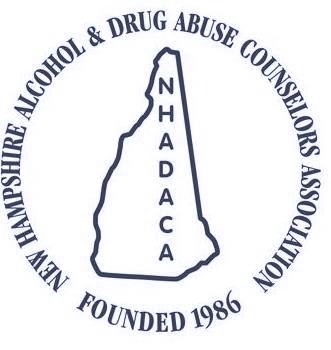
As a recovery coach in New Hampshire, your primary objective is to provide guidance and assistance to individuals undergoing addiction treatment.
Your responsibility as a recovery coach is to empower and motivate patients to overcome substance dependency and lead fulfilling lives when recovered.
This article aims to explore the field of recovery coaching and shed light on its significance.
Article Table of Contents
Job Description of a Professional Recovery Coach in New Hampshire
It is crucial to understand that recovery coaches have distinct roles from therapists and do not engage in diagnosing or treating individuals.
The main focus of a recovery coach is to provide support and guidance to clients, aiding them in their pursuit of sustainable recovery.
Recovery coaches are equipped to work with individuals struggling with various forms of addiction, offering personalized assistance tailored to their specific needs.
The key responsibilities of a recovery coach include:
- Educating clients on essential life skills,
- Collaborating with them to establish realistic goals
- Developing actionable plans to achieve them
- Conducting regular safety and wellness checks
- Monitoring clients’ progress
- Holding them accountable for their actions
- Making other recovery resources easier to access
- Adhering to HIPAA guidelines to maintain privacy and establish trust
- Meeting with clients and their families to provide better support
- Addressing any challenges or concerns that may arise.
Steps to Become a Professional Recovery Coach in New Hampshire
If you aspire to become a recovery coach in New Hampshire, here are the steps you can take:
Obtain a High School Diploma
To pursue a career as a recovery coach, it is necessary to have a high school diploma or equivalent qualification.
If you don’t have a high school diploma, you can obtain a General Educational Development (GED) certificate as an alternative.
Gain Practical Experience
Practical experience is crucial in developing the necessary skills for the role.
Consider volunteering at recovery centers or organizations dedicated to addiction recovery in your local area to gain hands-on experience.
Become Certified
If you are looking to get certified, you need to:
- Accumulate 500 hours of combined paid work or volunteer experience in the field
- Of the 500 hours, at least 25 hours must be completed under the supervision of a qualified recovery coach
- Have 46 hours of training
- Take the IC&RC Peer Recovery Examination.
Stay Updated
To thrive in your role as a recovery coach, it is crucial to stay abreast of the latest advancements and evolving landscape within the field.
Active participation in classes, workshops, and ongoing educational initiatives will not only keep you well-informed but also foster connections with fellow industry professionals.
Finding Training Options for Recovery Coaches in New Hampshire
The following institutions provide training that is recognized by the NH Board of Licensing for Alcohol and Other Drug Use Professionals.
The Association for Addiction Professionals 
The NCC AP has set up 3 main credentials for recovery coaches:
- National Certified Addiction Counselor, Level I (NCAC I)
- National Certified Addiction Counselor, Level II (NCAC II)
- Master Addiction Counselor (MAC)
These are meant to accommodate several levels of training, based on the knowledge of the substance use disorders professional.
Each credential has some standards adjusted to the target individuals for assessment.
You can advance through the credentials, and finishing each test shows your leadership in the field.
New Hampshire Training Institute on Addictive Disorders 
It oversees the certification and endorsement opportunities for substance use disorder counselors at the national and international levels.
The main functions of the NCC AP include:
- Development and Maintenance of Standards: The NCC AP sets up the national and global standards for cucial knowledge in substance use disorder counseling.
- Evaluation Mechanisms: The NCC AP implements evaluation mechanisms to assess and monitor the level of knowledge required for national and international credentials.
- Recognition of Qualified Individuals: The NCC AP grants formal recognition to individuals who meet the established national and international standards.
- Policy Establishment: The NCC AP establishes appropriate policies related to the acquisition and maintenance of national and international credentials.
These policies ensure that counselors adhere to ongoing professional development and ethical practices.
New England Institute of Addiction Studies 
Choose from a wide range of intensive courses that cover various aspects of treatment, prevention, and recovery, catering to both seasoned professionals and individuals seeking specialized knowledge.
The Best Practices program offers courses such as Clinical Supervision Foundations and Clinical Supervision Recertification, providing comprehensive training in these areas.
If the program is conducted virtually, participants can engage in live videoconference sessions that encourage interaction and participation.
In addition to the courses, there are plenary sessions and virtual community activities that foster networking and collaboration.
Attendees have the flexibility to choose whether to participate in the entire program or select specific days based on their preferences and schedules.
Partial scholarships are available for residents of most New England states, allowing for increased accessibility and affordability.
By participating in this event, addiction professionals can earn up to 26 contact hours, further enhancing their knowledge and skills in their respective fields.
The program encompasses advanced training in:
- Treatment approaches
- Administration
- Best practices in opioid treatment,
- Advanced prevention strategies
- Clinical supervision
| School Name | Address |
|---|---|
| New Hampshire Training Institute on Addictive Disorders | 130 Pembroke Rd # 150, Concord, NH 03301 |
| New England Institute of Addiction Studies | online |
Salary Outlook for Recovery Coaches in New Hampshire
In New Hampshire, recovery coaches can anticipate earning an approximate annual income of $34,790.
Some factors can influence how much money you make, including personal experience, geographical location, and employer.
To provide you with a more comprehensive understanding, please refer to the unique table below, which outlines the potential income range specifically tailored to recovery coaches in New Hampshire.
Annual Salary Range:| Location | Avg. Annual Salary |
|---|---|
| Litchfield | $37,221 |
| Merrimack | $37,221 |
| Nashua | $37,221 |
| Salem | $36,672 |
| Derry | $36,185 |
| Keene | $35,589 |
| Dover | $35,401 |
| Portsmouth | $35,401 |
| Rochester | $35,257 |
| Fremont | $35,117 |
Regional Salary in New Hampshire
| Region | Employed | Avg. Annual Salary | Avg. Hourly Pay | Top 10% Annual Salary | Bottom 10% Annual Salary |
|---|---|---|---|---|---|
| Manchester, NH | 30 | $64,200 | $30.87 | $88,310 | $48,020 |
* Employment conditions in your area may vary.
Frequently Asked Questions
Are there circumstances that can disqualify individuals from becoming certified?
Yes and these are:
- Having a criminal background.
- Failing to maintain client confidentiality.
- Current mental health issues or substance use disorder.
- Engaging in fraud.
- Engaging in sexual relations, solicitation, or abuse of a current or previous client.
- Having disciplinary actions taken against a substance use license.
Where can I find work as a professional recovery coach in New Hampshire?
There are several places that need recovery coaches, like:
- Hospitals
- Recovery clinics
- Detox centers
- Various community centers
What skills do professional recovery coaches in New Hampshire need?
Professional recovery coaches in New Hampshire need skills such as:
- Very strong interpersonal skills
- Empathy
- Very strong communication skills
- Organization skills
- Commitment
Read the full guide: How to Become a Professional Recovery Coach